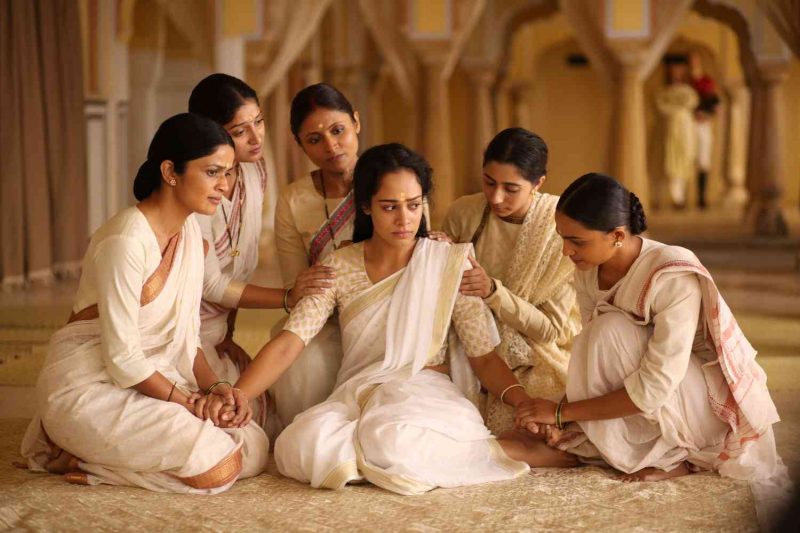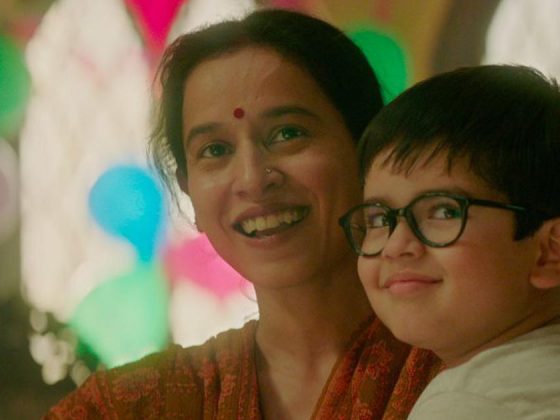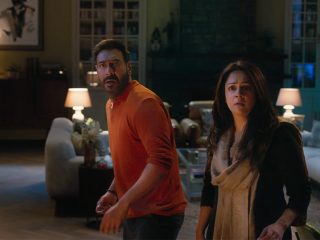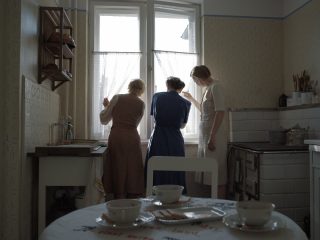The release of debut director, Swati Bhise’s The Warrior Queen of Jhansi, adds to a list of films made on India’s feminist freedom fighter, Rani Laxmibai and her rebellion against the British East India Company between 1857-1858. Well-researched, the film is sincere in its portrayal of the brave Queen but is overall shoddy.
With a run time of 103 minutes, The Warrior Queen of Jhansi stars Devika Bhise as Rani Laxmibai, backed by a good ensemble of Indian and British actors including Rupert Everett (as Sir Hugh Rose), Derek Jacobi (as Lord Palmerston), Jodhi May (as a young Queen Victoria), Ben Lamb (as Sir Thomas Ellis) and Nathaniel Parker (as Sir Robert Hamilton), Yatin Karyekar (as Moropant) and Arif Zakaria (as Gaus Khan). However, while some of the performances come across as caricaturist, it is Devika Bhise’s accented portrayal of the Indian queen – be it her English, Hindi or Marathi – that is the first big letdown in the film.
The film focuses on the years following the deaths of Rani Laxmibai’s 4-month old son Damodar and that of her husband, Gangadhar Rao (played by Milind Gunaji) leading to her ultimate rebellion against British forces and the annexation of the kingdom of Jhansi. Bhise perfectly portrays Laxmibai’s fears of Jhansi being attacked by the neighbouring states in the wake of her husband’s death and her resolve to not give up her kingdom. We are privy to the discussions happening not only on the Indian side but also, between Queen Victoria and Lord Palmerstone, the former insisting on non-violent negotiations with the Indians and the latter in favor of the opposite. Victoria doesn’t have much say in Palmerstone’s plans for Jhansi, making it look like the most powerful woman in the world was meeker than Laxmibai in comparison, who ruled with conviction. There is also the presence of an Omar Malik, an Indian advisor to Victoria, a character fashioned after Munshi Abdul Karim, a figure who had in fact, arrived in London 30 years later. Flitting back and forth between events taking place in London and Jhansi, the director tries to enforce the idea of good vs. evil, drawing from the actors’ performances.
In the midst of the British troops suffering from bouts of Cholera, Everett’s, Hugh Rose and Parker’s, Robert Hamilton can be seen cahooting with each other over drinks, discussing the need for the Rani to be “broken and destroyed”. Back in India, however, Laxmibai is busy training the women of her kingdom “to fight better than men”, gearing up for the battle that is to come. The greedier and more cruel Hamilton gets, the more Rose seems to be conflicted about the impact of imperialism on the Indian people. Devika Bhise, a focused actor and well-trained in martial arts for the film, proves she can deftly swing a sword while also showing immense potential in the handling of state affairs. Rani Laxmibai’s difficult association with Sir Thomas Ellis stops short of indicating a romance between them, even though the man’s face exhibits a clear fascination for the gutsy queen.
The film’s overall production value is commendable, especially the war sequences that aren’t too over the top. The visual compositions are cinematic and the director chooses to dramatize the dialogue portions, a lot more than the triumphant killing of British soldiers by the young queen and her female army. Some of the scenes shot in the night are poorly lit, making it difficult to witness the events transpiring on screen. Co-written by the mother-daughter duo (Swati Bhise, Devika Bhise) along with Olivia Emden, The Warrior of Jhansi is extremely dialogue heavy, packed with inspiring speeches, pompous declarations and a number of dialogues that feel like they’ve been pulled out of a history textbook or research paper. The Warrior of Jhansi, though informative, drags quite a bit, allowing the audience to drift off. For a story that has been adapted for cinematic value over and over again, there is ultimately no new take away from this film.










